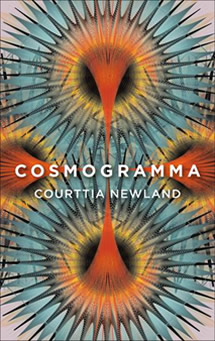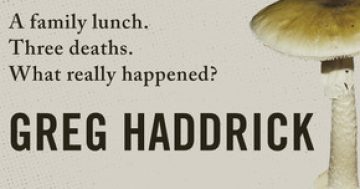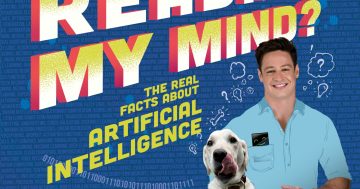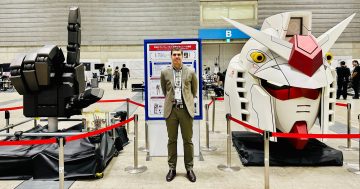Reviewed by Robert Goodman.
By Courttia Newland, Allen and Unwin, $27.99.
 Prolific author Courttia Newland’s Cosmogramma is a mixed bag of speculative fiction short stories. Like his contemporaries (such as China Miéville’s Three Moments of an Explosion or Ted Chiang’s Exhalation) Newland’s stories deliver short, pointed but unique dives into a host of familiar science fiction and fantasy tropes and ideas.
Prolific author Courttia Newland’s Cosmogramma is a mixed bag of speculative fiction short stories. Like his contemporaries (such as China Miéville’s Three Moments of an Explosion or Ted Chiang’s Exhalation) Newland’s stories deliver short, pointed but unique dives into a host of familiar science fiction and fantasy tropes and ideas.
The first two stories in the collection demonstrate this range. Percipi is a robopocalypse story. Science-fiction immersed readers know from the outset that the global release of intelligent servant robots is not going to end well. The interesting aspect to Newland’s approach is what precipitates the robot revolt and the reaction of the humans from whose point of view the story is told. This story is followed by Cirrostratus – a new weird tale of a travelling troupe of augmented circus performers. And so it goes on to interstellar colonies (Cosmogramma), strange apparitions (Dark Matters), dystopian post-Brexit governments (The Difference Between Me and You), some type of alien invasion (Seed), time travel (The Sankofa Principle) and decidedly weird designer drugs (You Meets You).
As with any collection of short stories by a single author, it is possible to identify emergent and common themes and ideas. Newland is clearly interested in the view of the outsider, of people outside the norm who are either downtrodden or find some kind of inner strength as a result. He uses his stories to explore the moral choices of his characters and those around them – in The Sanofka Principle the question is if you went back in time would you take the opportunity to stop or frustrate slavery no matter what the cost to your own future. The Difference Between Me and You considers the immigration haves and have nots and how people view those who are to be deported for the crime of not fitting in with the norm.
Cosmogramma is a thought provoking series of diverse speculative fiction short stories. Some stories are rich enough that they feel like the prelude for something bigger and potentially more interesting. Most will give readers something to think about. If not then they will at least leave an image or idea that has the ability to change a reader’s view of their world. Which is what short stories, particularly speculative fiction short stories, do best.











